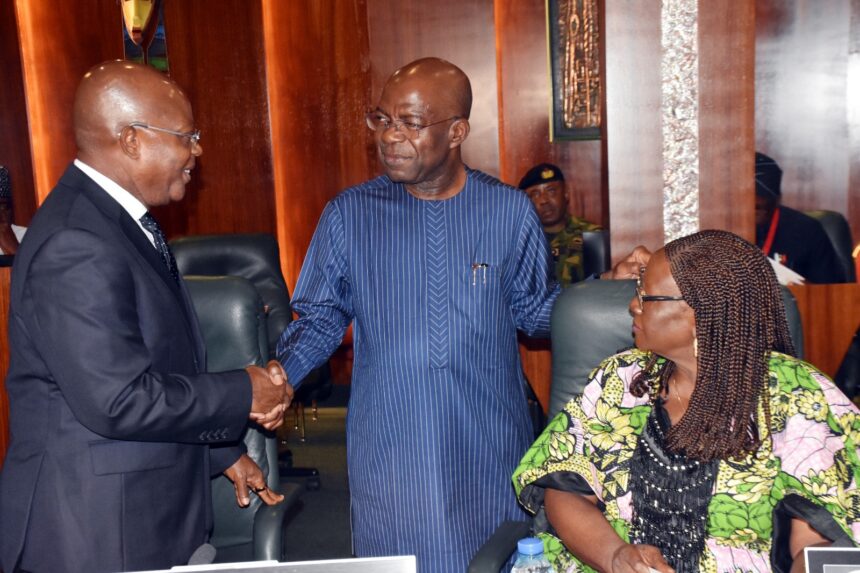Amid escalating insecurity across the country, the National Economic Council (NEC) on Thursday once again deferred deliberations on the establishment of state police, despite previous assurances that the issue would be concluded.
The meeting, presided over by Vice President Kashim Shettima at the Presidential Villa in Abuja, instead prioritized discussions on transforming Nigeria’s livestock and agribusiness sectors.
A key outcome of the session was the approval of a comprehensive plan projected to unlock $90 billion in economic value by 2035.
Although the growing insecurity – including recent deadly attacks in Plateau and Benue States – has intensified calls for decentralised policing, the Council cited time constraints as the reason for pushing the matter forward.
The meeting began with a minute of silence in honour of victims of the recent violence.
ALSO READ: Govs, CDS form joint committee to tackle insecurity
Bayelsa State Governor, Douye Diri, confirmed to journalists after the meeting that the state police issue had been included on the agenda but could not be addressed due to prolonged presentations.
“State police was part of our agenda today, but unfortunately, because of time demands, we couldn’t get to that bit of it,” Governor Diri said.
“I can assure you that in our next meeting, that issue will be exhaustively discussed.”
Discussions on concluding the modalities for the establishment of state policing have been on NEC’s table since at least December 2024, when it announced that all 36 states had submitted their positions on the matter.
However, Thursday’s postponement further delays progress on a proposal seen as critical to addressing Nigeria’s fragmented security architecture.
In place of the policing conversation, NEC focused heavily on the future of agriculture and livestock development.
Among the key decisions was the approval of a Cotton, Textile and Garment (CTG) Development Board, which will serve as the sector’s regulatory body. The board will operate from the Presidency and be driven by private sector participation, with oversight from key ministries and representatives from Nigeria’s six geopolitical zones.
The Council also approved the creation of a national office for the Green Imperative Project (GIP) in Abuja, alongside six regional offices across the country. The GIP aims to drive agricultural mechanisation and sustainability initiatives.
Other measures include strategies to address longstanding conflicts between farmers and herders, with a renewed emphasis on transitioning toward ranching as a more sustainable and secure model for livestock management.
The Council’s press briefing was delivered by Governors Diri (Bayelsa), Abdullahi Sule (Nasarawa), Hope Uzodinma (Imo), Biodun Oyebanji (Ekiti), and Minister of Agriculture and Food Security, Senator Abubakar Kyari.
On the council’s previous resolve to strengthen and streamline skills development efforts across the country, through the Technical and Vocational Education Training (TVET) initiative, it approved key recommendations in the presentation by the minister of education of skill development and urged state governors to take advantage of emerging opportunities under the new initiative to train and mentor youths in digital education and skill acquisition to add value to their lives.
It advised states to also fully participate in the programme irrespective of political affiliations considering the benefits of the programme on job creation and youth empowerment.
The meeting was attended by the Sole Administrator of Rivers State, retired Vice Admiral Ibok-Ete Ibas.
Though unelected, Ibas is took part in the discussions alongside governors from across the country.






